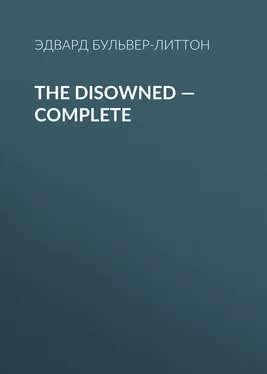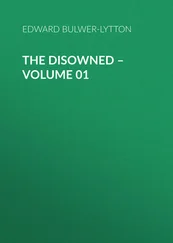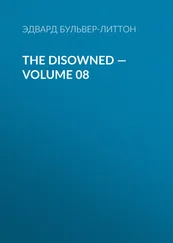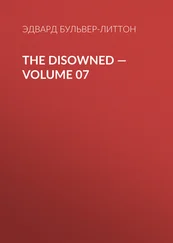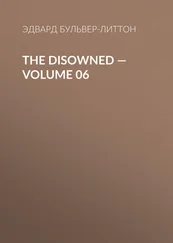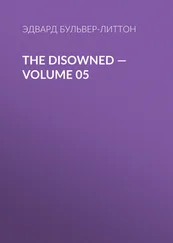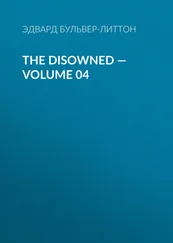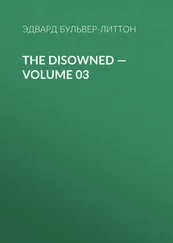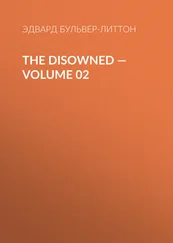Эдвард Бульвер-Литтон - The Disowned — Complete
Здесь есть возможность читать онлайн «Эдвард Бульвер-Литтон - The Disowned — Complete» — ознакомительный отрывок электронной книги совершенно бесплатно, а после прочтения отрывка купить полную версию. В некоторых случаях можно слушать аудио, скачать через торрент в формате fb2 и присутствует краткое содержание. Жанр: foreign_prose, literature_19, Европейская старинная литература, foreign_antique, на английском языке. Описание произведения, (предисловие) а так же отзывы посетителей доступны на портале библиотеки ЛибКат.
- Название:The Disowned — Complete
- Автор:
- Жанр:
- Год:неизвестен
- ISBN:нет данных
- Рейтинг книги:5 / 5. Голосов: 1
-
Избранное:Добавить в избранное
- Отзывы:
-
Ваша оценка:
- 100
- 1
- 2
- 3
- 4
- 5
The Disowned — Complete: краткое содержание, описание и аннотация
Предлагаем к чтению аннотацию, описание, краткое содержание или предисловие (зависит от того, что написал сам автор книги «The Disowned — Complete»). Если вы не нашли необходимую информацию о книге — напишите в комментариях, мы постараемся отыскать её.
The Disowned — Complete — читать онлайн ознакомительный отрывок
Ниже представлен текст книги, разбитый по страницам. Система сохранения места последней прочитанной страницы, позволяет с удобством читать онлайн бесплатно книгу «The Disowned — Complete», без необходимости каждый раз заново искать на чём Вы остановились. Поставьте закладку, и сможете в любой момент перейти на страницу, на которой закончили чтение.
Интервал:
Закладка:
“How long a period of time,” said Mr. Bossolton, “has elapsed since this deeply-to-be-regretted and seriously-to-be-investigated accident occurred?”
“Not many minutes,” said Mordaunt; “make no further delay, I beseech you, but examine the arm; it is not broken, I trust?”
“In this world, Mr. Mordaunt,” said the practitioner, bowing very low, for the person he addressed was of the most ancient lineage in the county, “in this world, Mr. Mordaunt, even at the earliest period of civilization, delay in matters of judgment has ever been considered of such vital importance, and—and such important vitality, that we find it inculcated in the proverbs of the Greeks and the sayings of the Chaldeans as a principle of the most expedient utility, and—and—the most useful expediency!”
“Mr. Bossolton,” said Mordaunt, in a tone of remarkable and even artificial softness and civility, “have the kindness immediately to examine this gentleman’s bruises.”
Mr. Bossolton looked up to the calm but haughty face of the speaker, and without a moment’s hesitation proceeded to handle the arm, which was already stripped for his survey.
“It frequently occurs,” said Mr. Bossolton, “in the course of my profession, that the forcible, sudden, and vehement application of any hard substance, like the hoof of a quadruped, to the soft, tender, and carniferous parts of the human frame, such as the arm, occasions a pain—a pang, I should rather say—of the intensest acuteness, and—and of the acutest intensity.”
“Pray, Mr. Bossolton, is the bone broken?” asked Mordaunt.
By this time the patient, who had been hitherto in that languor which extreme pain always produces at first, especially on young frames, was sufficiently recovered to mark and reply to the kind solicitude of the last speaker: “I thank you, sir,” said he with a smile, “for your anxiety, but I feel that the bone is not broken; the muscles are a little hurt, that is all.”
“Young gentleman,” said Mr. Bossolton, “you must permit me to say that they who have all their lives been employed in the pursuit, and the investigation, and the analysis of certain studies are in general better acquainted with those studies than they who have neither given them any importance of consideration—nor—nor any consideration of importance. Establishing this as my hypothesis, I shall now proceed to—”
“Apply immediate remedies, if you please, Mr. Bossolton,” interrupted Mr. Mordaunt, in that sweet and honeyed tone which somehow or other always silenced even the garrulous practitioner.
Driven into taciturnity, Mr. Bossolton again inspected the arm, and proceeded to urge the application of liniments and bandages, which he promised to prepare with the most solicitudinous despatch and the most despatchful solicitude.
CHAPTER V
Your name, Sir!
Ha! my name, you say—my name?
‘T is well—my name—is—nay, I must consider.
This accident occasioned a delay of some days in the plans of the young gentleman, for whom we trust very soon, both for our own convenience and that of our reader, to find a fitting appellation.
Mr. Mordaunt, after seeing every attention paid to him both surgical and hospitable, took his departure with a promise to call the next day; leaving behind him a strong impression of curiosity and interest to serve our hero as some mental occupation until his return. The bonny landlady came up in a new cap, with blue ribbons, in the course of the evening, to pay a visit of inquiry to the handsome patient, who was removed from the Griffin, No. 4, to the Dragon, No. 8,—a room whose merits were exactly in proportion to its number, namely, twice as great as those of No. 4.
“Well, sir,” said Mrs. Taptape, with a courtesy, “I trust you find yourself better.”
“At this moment I do,” said the gallant youth, with a significant air.
“Hem,” quoth the landlady.
A pause ensued. In spite of the compliment, a certain suspicion suddenly darted across the mind of the hostess. Strong as are the prepossessions of the sex, those of the profession are much stronger.
“Honest folk,” thought the landlady, “don’t travel with their initials only; the last ‘Whitehall Evening’ was full of shocking accounts of swindlers and cheats; and I gave nine pounds odd shillings for the silver teapot John has brought him up,—as if the delft one was not good enough for a foot traveller!”
Pursuing these ideas, Mrs. Taptape, looking bashfully down, said,—
“By the by, sir; Mr. Bossolton asked me what name he should put down in his book for the medicines; what would you please me to say, sir?”
“Mr. who?” said the youth, elevating his eyebrows.
“Mr. Bossolton, sir, the apothecary.”
“Oh! Bossolton! very odd name that,—not near so pretty as—dear me, what a beautiful cap that is of yours!” said the young gentleman.
“Lord, sir, do you think so? The ribbon is pretty enough; but—but, as I was saying, what name shall I tell Mr. Bossolton to put in his book?” “This,” thought Mrs. Taptape, “is coming to the point.”
“Well!” said the youth, slowly, and as if in a profound reverie, “well, Bossolton is certainly the most singular name I ever heard; he does right to put it in a book: it is quite a curiosity! is he clever?”
“Very, sir,” said the landlady, somewhat sharply; “but it is your name, not his, that he wishes to put into his book.”
“Mine?” said the youth, who appeared to have been seeking to gain time in order to answer a query which most men find requires very little deliberation, “mine, you say; my name is Linden—Clarence Linden—you understand?”
“What a pretty name!” thought the landlady’s daughter, who was listening at the keyhole; “but how could he admire that odious cap of Ma’s!”
“And, now, landlady, I wish you would send up my boxes; and get me a newspaper, if you please.”
“Yes, sir,” said the landlady, and she rose to retire.
“I do not think,” said the youth to himself, “that I could have hit on a prettier name, and so novel a one too!—Clarence Linden,—why, if I were that pretty girl at the bar I could fall in love with the very words. Shakspeare was quite wrong when he said,—
‘A rose by any other name would smell as sweet.’”
“A rose by any name would not smell as sweet; if a rose’s name was Jeremiah Bossolton, for instance, it would not, to my nerves at least, smell of anything but an apothecary’s shop!”
When Mordaunt called the next morning, he found Clarence much better, and carelessly turning over various books, part of the contents of the luggage superscribed C. L. A book of whatever description was among the few companions for whom Mordaunt had neither fastidiousness nor reserve; and the sympathy of taste between him and the sufferer gave rise to a conversation less cold and commonplace than it might otherwise have been. And when Mordaunt, after a stay of some length, rose to depart, he pressed Linden to return his visit before he left that part of the country; his place, he added, was only about five miles distant from W——. Linden, greatly interested in his visitor, was not slow in accepting the invitation, and, perhaps for the first time in his life, Mordaunt was shaking hands with a stranger he had only known two days.
CHAPTER VI
While yet a child, and long before his time,
He had perceived the presence and the power
Of greatness.
.....
But eagerly he read, and read again.
.....
Yet still uppermost
Nature was at his heart, as if he felt,
Though yet he knew not how, a wasting power
In all things that from her sweet influence
Might seek to wean him. Therefore with her hues,
Her forms, and with the spirit of her forms,
He clothed the nakedness of austere truth.
Интервал:
Закладка:
Похожие книги на «The Disowned — Complete»
Представляем Вашему вниманию похожие книги на «The Disowned — Complete» списком для выбора. Мы отобрали схожую по названию и смыслу литературу в надежде предоставить читателям больше вариантов отыскать новые, интересные, ещё непрочитанные произведения.
Обсуждение, отзывы о книге «The Disowned — Complete» и просто собственные мнения читателей. Оставьте ваши комментарии, напишите, что Вы думаете о произведении, его смысле или главных героях. Укажите что конкретно понравилось, а что нет, и почему Вы так считаете.
